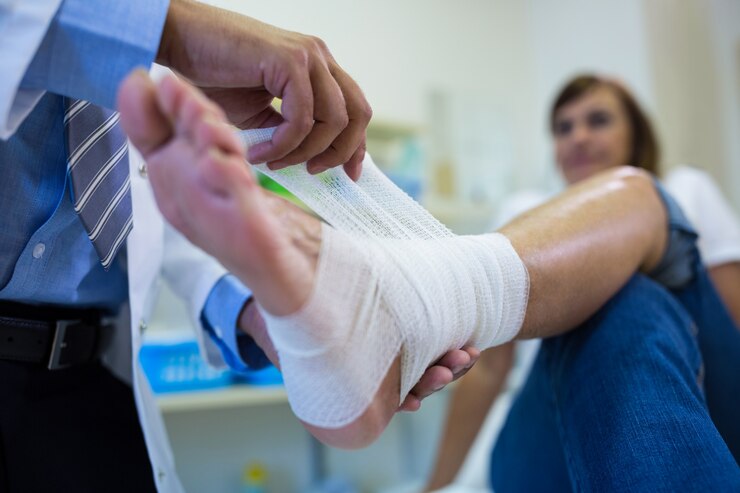Recovering from an injury isn’t just about healing the body—it also involves managing mental and emotional well-being. Many people overlook the psychological effects of physical injuries, but stress, anxiety, and depression can significantly impact recovery. At Injuries Wiki, we believe that understanding the mind-body connection is essential for a full and healthy recovery.
How Mental Health Affects Physical Injury Recovery
When you experience an injury, your body and mind both go through significant stress. Pain, reduced mobility, and lifestyle changes can trigger emotional responses that may slow the healing process. Studies have shown that individuals with positive mental health recover faster and experience less pain than those dealing with anxiety or depression.
Some key ways mental health influences physical recovery include:
- Stress and Inflammation
- High stress levels lead to increased inflammation, which can slow tissue healing.
- Chronic stress releases cortisol, a hormone that weakens the immune system and reduces the body’s ability to repair itself.
- Pain Perception
- Anxiety and depression can make pain feel more intense.
- Negative emotions can alter brain chemistry, making the body more sensitive to pain signals.
- Sleep and Healing
- Poor mental health often leads to insomnia or poor-quality sleep, which is crucial for cell repair and muscle recovery.
- Lack of rest can prolong inflammation and slow down overall healing.
- Motivation for Rehabilitation
- People struggling with mental health issues may find it harder to stay consistent with physical therapy or follow medical advice.
- A lack of motivation can lead to prolonged recovery times and even re-injury.
Common Mental Health Challenges During Injury Recovery
1. Depression
Long recovery periods, chronic pain, or loss of mobility can contribute to feelings of hopelessness and sadness. Signs of depression after an injury include:
- Lack of motivation to engage in physical therapy or activities.
- Withdrawal from social interactions.
- Persistent feelings of sadness or frustration.
2. Anxiety and Fear of Re-Injury
Many people develop anxiety about returning to normal activities due to fear of another injury. This can lead to:
- Avoiding movement or exercise, which can delay healing.
- Overprotecting the injured area, leading to stiffness or muscle loss.
3. PTSD from Traumatic Accidents
For those injured in serious accidents, such as car crashes or workplace incidents, post-traumatic stress disorder (PTSD) can develop. Symptoms may include:
- Flashbacks or nightmares about the accident.
- Increased heart rate or panic attacks when reminded of the event.
- Avoidance of places or activities associated with the injury.
Strategies for Managing Mental Health During Recovery
At Injuries Wiki, we recommend a well-rounded approach to injury recovery that prioritizes both physical and mental well-being. Here are some strategies to support mental health during healing:
1. Prioritize Emotional Support
- Stay connected with family and friends who can offer encouragement.
- Talk openly about your emotions instead of bottling them up.
- Consider joining a support group for individuals recovering from similar injuries.
2. Work with a Mental Health Professional
- A therapist or counselor can help you process emotions, set recovery goals, and develop coping strategies.
- Cognitive Behavioral Therapy (CBT) can be especially useful in managing anxiety and fear of re-injury.
3. Stay Active Within Your Limits
- Engage in safe, light physical activity as recommended by your doctor or physical therapist.
- Gentle exercises like yoga, tai chi, or meditation can help manage stress and promote relaxation.
4. Set Small, Achievable Goals
- Instead of focusing on a full recovery timeline, break it down into small, manageable steps.
- Celebrate progress, no matter how minor, to stay motivated.
5. Practice Mindfulness and Relaxation Techniques
- Deep breathing exercises can reduce stress and improve pain management.
- Meditation helps refocus the mind, promoting a more positive outlook on recovery.
6. Get Enough Rest and Maintain a Healthy Diet
- Sleep is critical for both mental and physical healing. Aim for at least 7-9 hours per night.
- A balanced diet rich in anti-inflammatory foods (such as leafy greens, fatty fish, and nuts) can aid in both brain and body recovery.
The Role of Injuries Wiki in Supporting Your Recovery
At Injuries Wiki, we provide valuable resources, expert insights, and practical tips to help individuals navigate injury recovery—both physically and mentally. Whether you’re dealing with chronic pain, looking for rehabilitation strategies, or need guidance on coping with stress, we are here to support you every step of the way.
Explore our Topics Page for more in-depth articles on injury prevention, recovery strategies, and legal rights. If you need assistance, don’t hesitate to Contact Us.
Final Thoughts
Recovering from an injury is not just about healing the body—it’s also about nurturing mental resilience. Stress, anxiety, and depression can all impact how quickly and effectively you recover. By incorporating mental health strategies into your healing process, you can improve your overall well-being and get back to living a fulfilling life.
For expert insights and the latest in injury recovery, visit Injuries Wiki—your trusted resource for physical and mental well-being after an accident.









